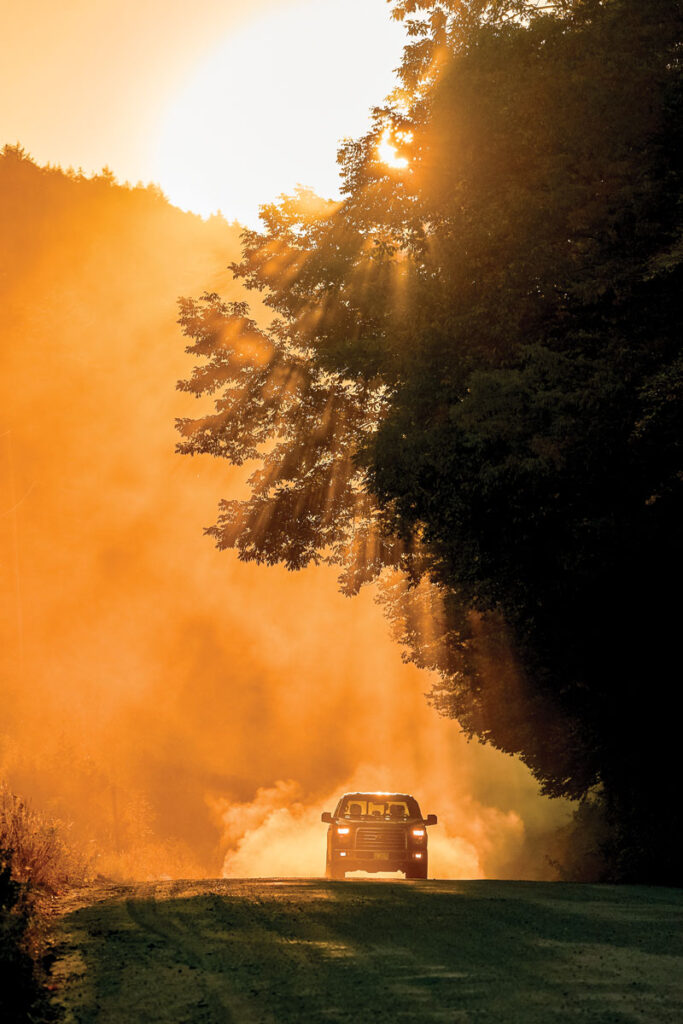By Brian Kevin
Photos by Lone Spruce Creative
From our June 2020 issue
No other book on our list of “100 Maine Books Every Lover of Maine Should Read” inspires fanboys quite like Thoreau’s The Maine Woods, and many are the writers and journalists who’ve landed the plum assignment of retracing the traveling transcendentalist’s route across northern Maine. CBS’s Sunday Morning sent a crew in 2014, the New York Times dispatched a writer and photographer in 2008, and so on, probably going back to the late 19th century, when Thoreau’s Maine travel journals were published.
Occasionally, a real heavy-hitter turns up on the Thoreau trail. John McPhee’s 1975 book, The Survival of the Bark Canoe, chronicles a Maine river trip with an atavistic boat maker and his pals, a picaresque journey scattered with insights about “the first tourist in the Maine woods” and his Penobscot guides, along with methods of river travel past and present. J. Parker Huber’s The Wildest Country, first published in 1981 and since updated, is a soulful guidebook dissecting both Thoreau’s journeys and Maine’s changing north woods. Every Mainer should have a copy of John Neff’s exhaustive and highly readable Katahdin: An Historic Journey, which devotes a chapter to Thoreau’s pilgrimage to the Greatest Mountain, although the poet of Concord pops up throughout.




And then there is John Gould, who bills his 1995 memoir Maine’s Golden Road as “a second opinion about a couple of million acres of the Great North Maine Wilderness, 150 years after the Philosopher of Walden Pond carried an umbrella to the top of his beloved Mount Ktaadn.” Gould was as prolific a writer as Maine has ever turned out. He wrote or cowrote some 30 books and has the distinction of being the country’s longest-running columnist, penning a weekly piece in the Christian Science Monitor from 1942 until his death in 2003. For 30 of those years, he spent a few weeks each summer fishing, paddling, and hiking in Thoreau country, accessing ponds, trails, and camps via the titular Golden Road.
Completed in 1975, the Golden Road is a mostly unpaved, 96-mile ribbon built to connect the Great Northern Paper Company’s Millinocket mills to its vast timber holdings to the north and west. It was also a boon to sportsmen like Gould, who, with a permit from Great Northern, could suddenly reach with comparative ease deep woods and salmon-rich waters. With its linked essays, reflections on Thoreau, and affectionate portraits of old-guard wardens and woodsmen, Maine’s Golden Road is a record of a transitional time: the twilight of the old lumber camps, the mechanization of logging, and the opening of Maine’s deepest forests to weekenders.




Gould remembers having a single key from Great Northern — once Maine’s largest landowner, now defunct — that unlocked just about any gate he came across. Today, with the forest-products industry flailing and fractured, some half-dozen landowners manage sections of the Golden Road. Logging traffic is diminished, with Subarus full of anglers and vans towing whitewater rafts as common as trucks loaded with timbers. Even so, a modern-day Thoreau admirer can drive the rutted roadway for miles without encountering any of these. The Golden Road still grants access to, in Gould’s words, “as fine a wilderness pleasure as a man can have.”




